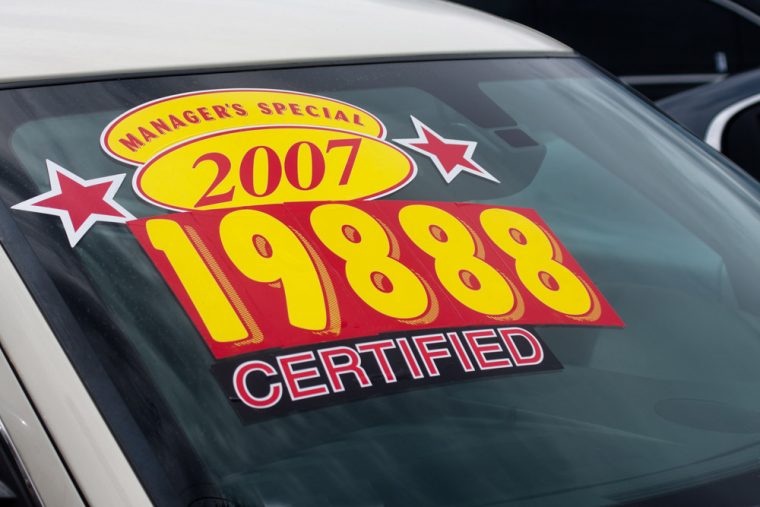Monthly Used Car Payments Reach Record High of $378
With an average new vehicle loan of $19,708, customers are handing over more cash each month for their pre-owned rides
Numerous reports and studies have shown that the average price of a new car has been on the rise for some time. The average price of a used vehicle, meanwhile, has received considerably less focus.
Yet, a study by Experian shows that monthly payments for used cars are on the rise as well, reaching a record high of $378.
Understanding Leasing Lingo: Common car lease terms
Vehicle Prices on the Rise
A year ago, that monthly payment payment was approximately $365. With the average used vehicle loan up to $19,708, consumers are shelling out more cash each month for their pre-owned vehicles.
Of course, the average monthly payment for a new car has increased even more during that time. In 2017, that payment sat at $505; now, it has risen to $525 per month.
The price gap between new car payments and used car payments continues to widen. With payments for a new car now costing $147 more a month, many shoppers are choosing a used car instead.
Improving Financial Standings
According to Experian, 72-month loans continue to be the most common loan utilized by consumers for both new and used vehicle loans. Consumers appear to be utilizing credit unions more often to secure an automotive loan.
The good news is that those credit lenders are issuing out fewer deep subprime and subprime loans. In fact, deep subprime loans hit an all-time low of 3.54 percent.
This is due in part to improving credit scores. The average new-car customer has a credit score of approximately 715, while the average used-car consumer’s credit score sits around 655.
Secure Your Financial Standing: Easy ways to improve your credit score
30-day and 60-day delinquencies also improved during the first half of 2018. 30-day delinquencies decreased from 2.2 percent in 2017 to 2.11 percent. Meanwhile, 60-day delinquencies decreased to 0.64 percent from 0.67 percent a year prior.
Interest rates increased across all automotive loan options during this time, and there are more interest rate hikes projected for the remainder of the year. Therefore,drivers will likely need to spend even more money on their monthly auto loan payments for the foreseeable future.
Source: Experian

The News Wheel is a digital auto magazine providing readers with a fresh perspective on the latest car news. We’re located in the heart of America (Dayton, Ohio) and our goal is to deliver an entertaining and informative perspective on what’s trending in the automotive world. See more articles from The News Wheel.



